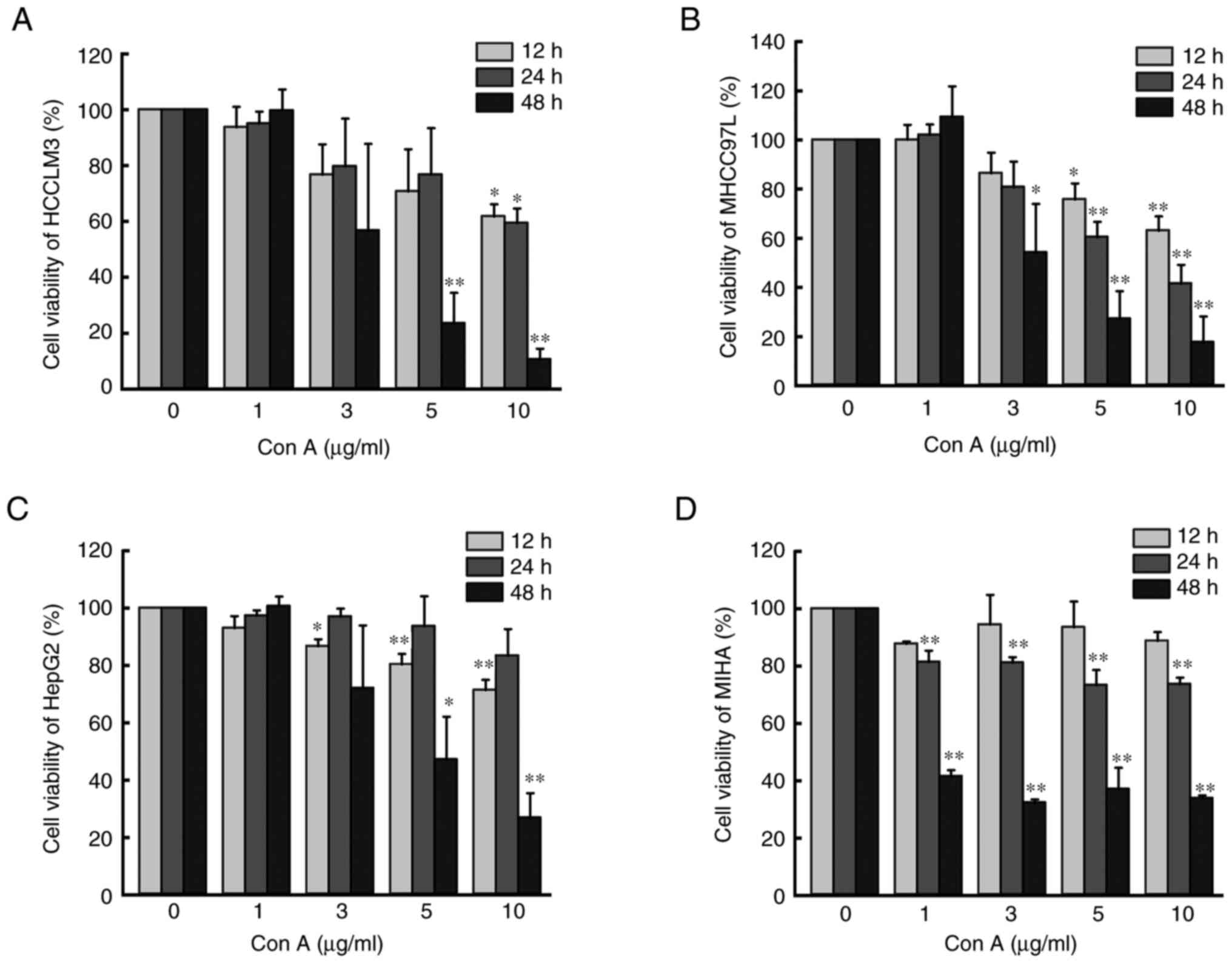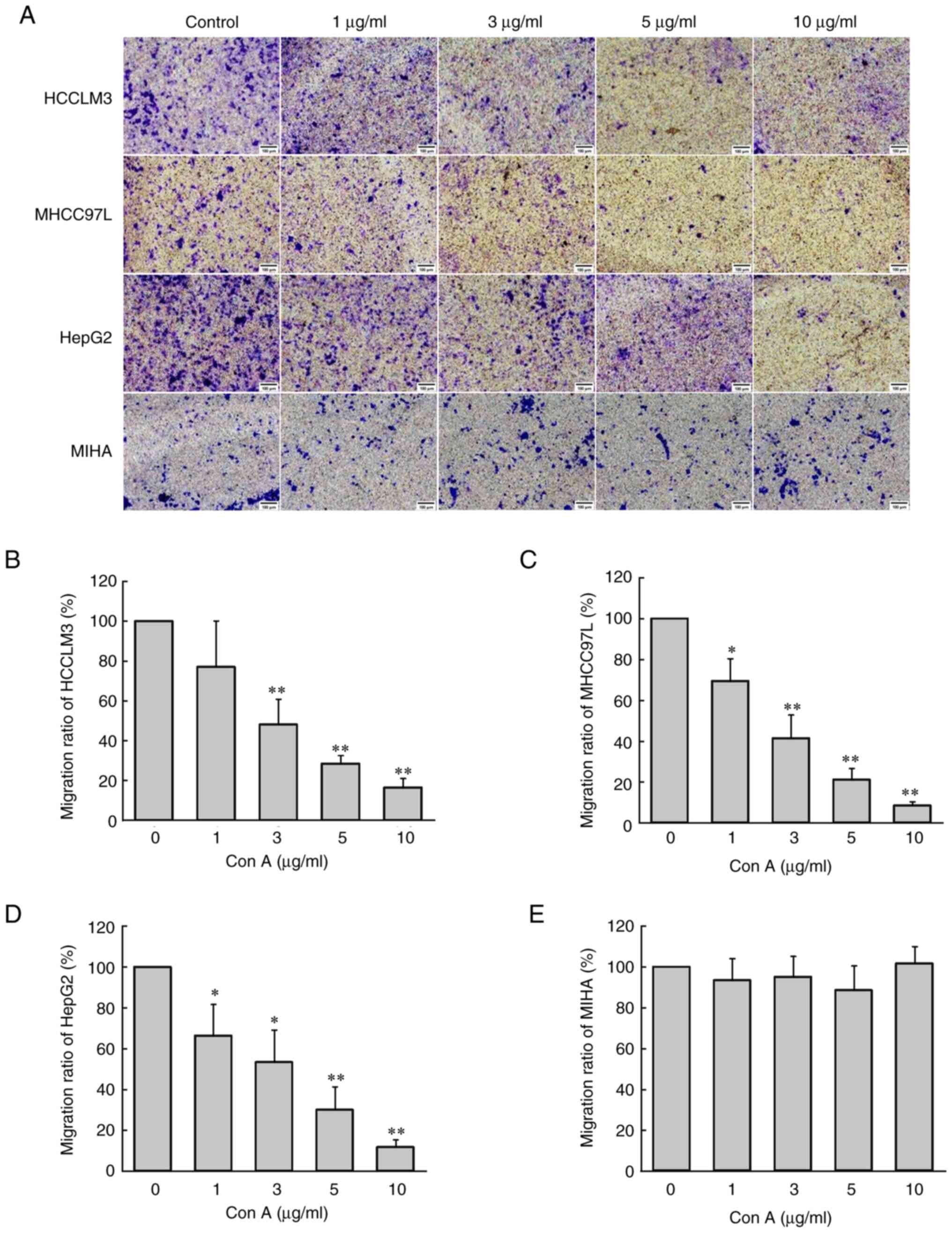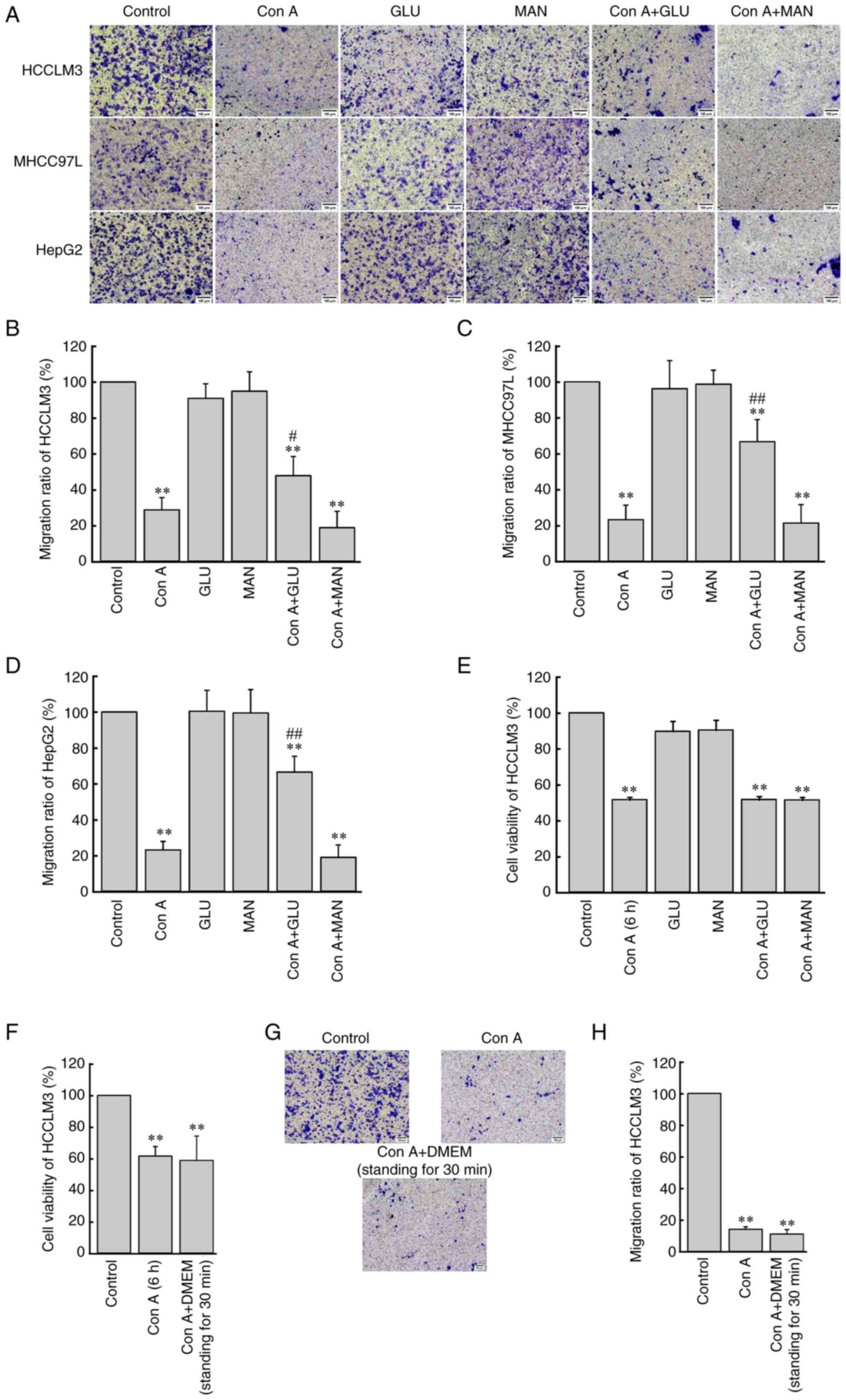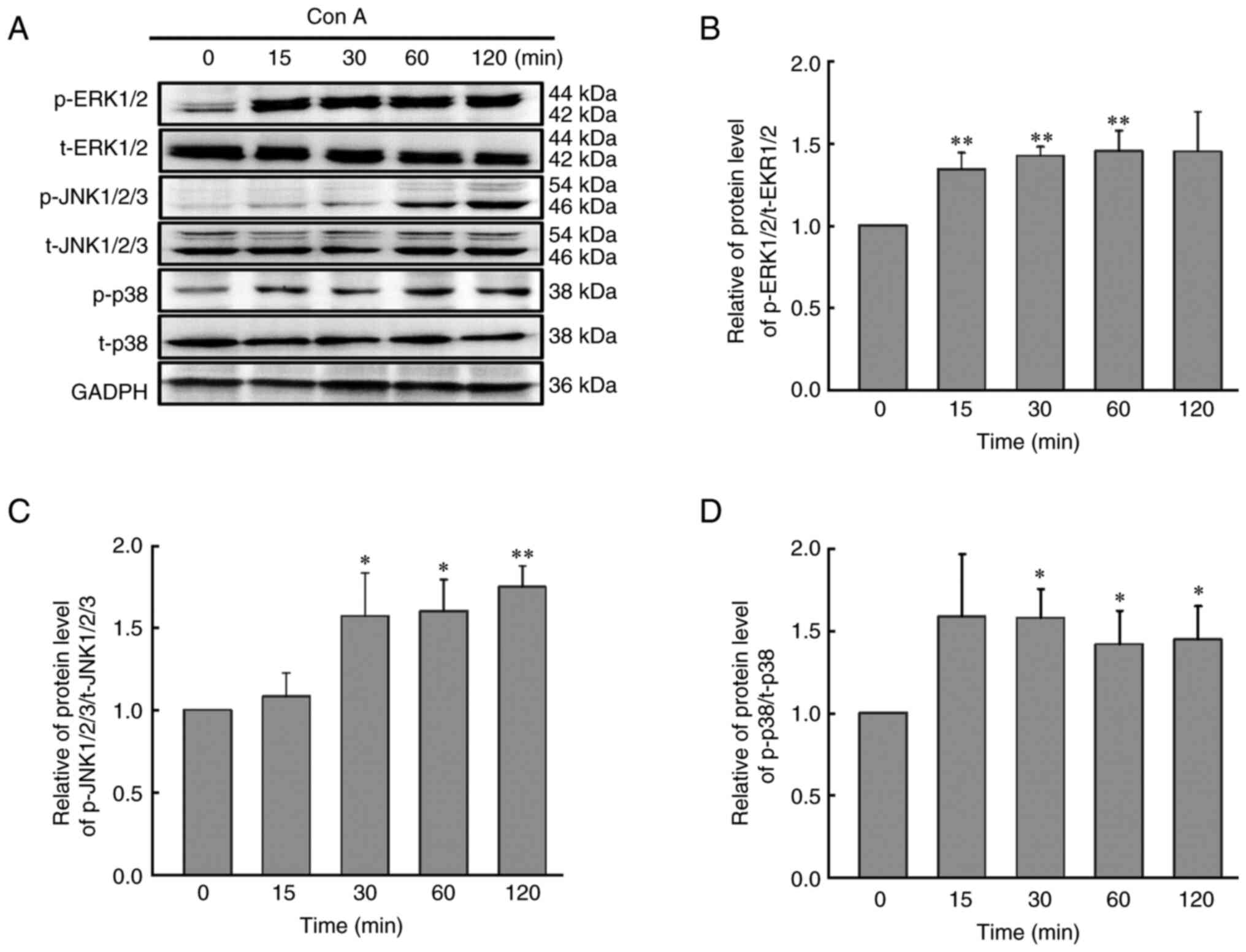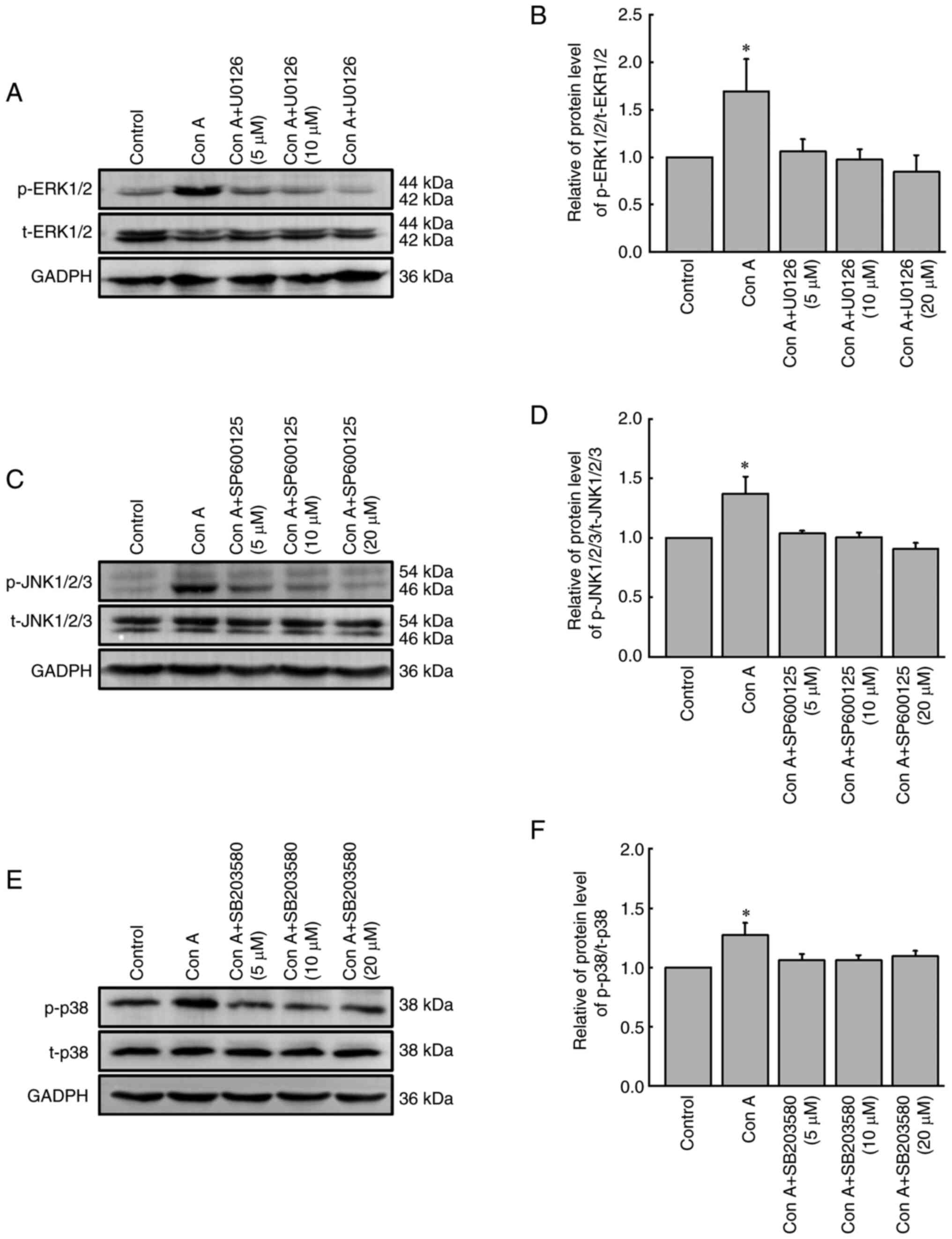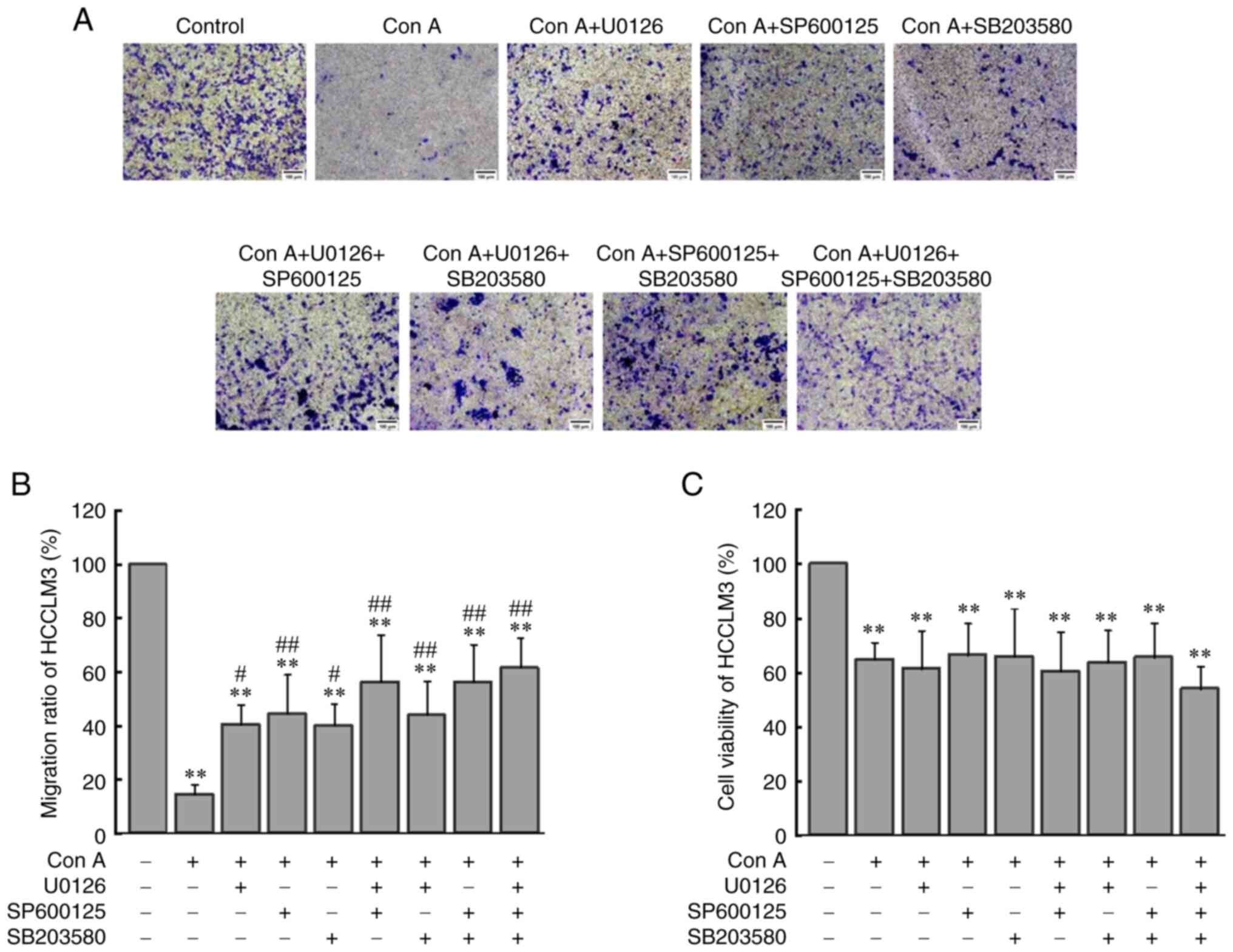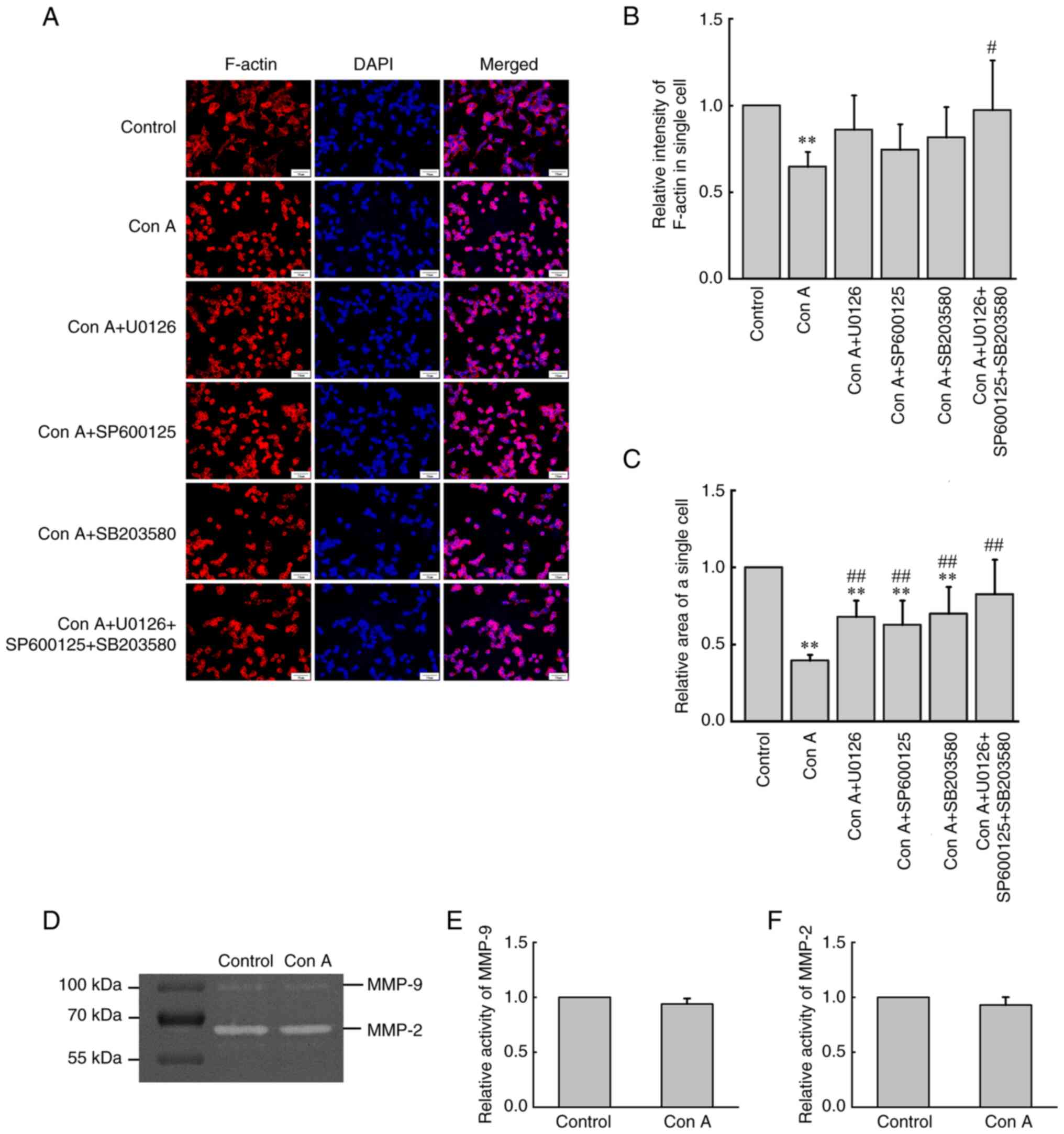|
1
|
Yuan H, Ji J, Shi M, Shi Y, Liu J, Wu J,
Yang C, Xi W, Li Q, Zhu W, et al: Characteristics of pan-cancer
patients with ultrahigh tumor mutation burden. Front Oncol.
11:6820172021. View Article : Google Scholar
|
|
2
|
Li Y, Zhou Y, Mao F, Shen S, Zhao B, Xu Y,
Lin Y, Zhang X, Cao X, Xu Y, et al: mir-452 reverses abnormal
glycosylation modification of ERα and estrogen resistance in TNBC
(triple-negative breast cancer) through targeting UGT1A1. Front
Oncol. 10:15092020. View Article : Google Scholar
|
|
3
|
Fan C, Tu C, Qi P, Guo C, Xiang B, Zhou M,
Li X, Wu X, Li X, Li G, et al: GPC6 promotes cell proliferation,
migration, and invasion in nasopharyngeal carcinoma. J Cancer.
10:3926–3932. 2019. View Article : Google Scholar : PubMed/NCBI
|
|
4
|
Kannagi R: Carbohydrate antigen sialyl
Lewis 1- its pathophysiological significance an induction mechanism
in cancer progression. Chang Gung Med J. 30:189–209.
2007.PubMed/NCBI
|
|
5
|
Miyagi T, Takahashi K, Hata K, Shiozaki K
and Yamaguchi K: Sialidase significance for cancer progression.
Glycoconj J. 29:567–577. 2012. View Article : Google Scholar : PubMed/NCBI
|
|
6
|
Estrada-Martínez LE, Moreno-Celis U,
Cervantes-Jiménez R, Ferriz-Martínez RA, Blanco-Labra A and
García-Gasca T: Plant lectins as medical tools against digestive
system cancers. Int J Mol Sci. 18:14032017. View Article : Google Scholar
|
|
7
|
Oliveira I, Nunes A, Lima A, Borralho P,
Rodrigues C, Ferreira RB and Ribeiro AC: New lectins from
mediterranean flora. Activity against ht29 colon cancer cells. Int
J Mol Sci. 20:30592019. View Article : Google Scholar
|
|
8
|
Lawanprasert A, Guinan CA, Langford EA,
Hawkins CE, Sloand JN, Fescemyer HW, Aronson MR, Halle JA, Marden
JH and Medina SH: Discovery of antitumor lectins from rainforest
tree root transcriptomes. PLoS One. 15:e02294672020. View Article : Google Scholar : PubMed/NCBI
|
|
9
|
Bloise N, Okkeh M, Restivo E, Della PC and
Visai L: Targeting the ‘sweet side’ of tumor with glycan-binding
molecules conjugated-nanoparticles: Implications in cancer therapy
and diagnosis. Nanomaterials. 11:2892021. View Article : Google Scholar : PubMed/NCBI
|
|
10
|
He Z, Chen Q, Chen F, Zhang J, Li H and
Lin JM: DNA-mediated cell surface engineering for multiplexed
glycan profiling using MALDI-TOF mass spectrometry. Chem Sci.
7:5448–5452. 2016. View Article : Google Scholar
|
|
11
|
Cavada BS, Pinto-Junior VR, Osterne VJ and
Nascimento KS: ConA-like lectins: High similarity proteins as
models to study structure/biological activities relationships. Int
J Mol Sci. 20:302018. View Article : Google Scholar
|
|
12
|
Lei HY and Chang CP: Lectin of
Concanavalin A as an anti-hepatoma therapeutic agent. J Biomed Sci.
16:102009. View Article : Google Scholar
|
|
13
|
Lai YC, Chuang YC, Chang CP and Yeh TM:
Macrophage migration inhibitory factor has a permissive role in
concanavalin A-induced cell death of human hepatoma cells through
autophagy. Cell Death Dis. 6:e20082015. View Article : Google Scholar : PubMed/NCBI
|
|
14
|
Chang CP, Yang MC, Liu HS, Lin YS and Lei
HY: Concanavalin A induces autophagy in hepatoma cells and has a
therapeutic effect in a murine in situ hepatoma model. Hepatology.
45:286–296. 2007. View Article : Google Scholar : PubMed/NCBI
|
|
15
|
Lai AC, Chi PY, Thio CL, Han YC, Kao HN,
Hsieh HW, Gervay-Hague J and Chang YJ: α-lactosylceramide protects
against iNKT-mediated murine airway hyperreactivity and liver
injury through competitive inhibition of Cd1d binding. Front Chem.
7:8112019. View Article : Google Scholar : PubMed/NCBI
|
|
16
|
Li S, Bi Y, Wang Q, Xu M, Ma Z, Yang Y,
Chang Y, Chen S, Liu D, Duan Z, et al: Transplanted mouse liver
stem cells at different stages of differentiation ameliorate
concanavalin A-induced acute liver injury by modulating tregs and
Th17 cells in mice. Am J Trans Res. 11:7324–7337. 2019.
|
|
17
|
Luo G, Chao YL, Tang B, Li BS, Xiao YF,
Xie R, Wang SM, Wu YY, Dong H, Liu XD and Yang SM: miR-149
represses metastasis of hepatocellular carcinoma by targeting
actin-regulatory proteins PPM1F. Oncotarget. 6:37808–37823. 2015.
View Article : Google Scholar
|
|
18
|
Zhang Y, Hu MY, Wu WZ, Wang ZJ, Zhou K,
Zha XL and Liu KD: The membrane-cytoskeleton organizer ezrin is
necessary for hepatocellular carcinoma cell growth and
invasiveness. J Cancer Res Clin Oncol. 132:685–697. 2006.
View Article : Google Scholar
|
|
19
|
Yang LN, Ning ZY, Wang L, Yan X and Meng
ZQ: HSF2 regulates aerobic glycolysis by suppression of FBP1 in
hepatocellular carcinoma. Am J Cancer Res. 9:1607–1621.
2019.PubMed/NCBI
|
|
20
|
Liu Y, Zhang Y, Xiao B, Tang N, Hu J,
Liang S, Pang Y, Xu H, Ao J, Yang J, et al: MiR-103a promotes
tumour growth and influences glucose metabolism in hepatocellular
carcinoma. Cell Death Dis. 12:6182021. View Article : Google Scholar : PubMed/NCBI
|
|
21
|
Du P, Liang H, Fu X, Wu P, Wang C, Chen H,
Zheng B, Zhang J, Hu S, Zeng R, et al: SLC25A22 promotes
proliferation and metastasis by activating MAPK/ERK pathway in
gallbladder cancer. Cancer Cell Int. 19:332019. View Article : Google Scholar
|
|
22
|
Chen J, Ji T, Wu D, Jiang S, Zhao J, Lin H
and Cai X: Human mesenchymal stem cells promote tumor growth via
MAPK pathway and metastasis by epithelial mesenchymal transition
and integrin α5 in hepatocellular carcinoma. Cell Death Dis.
10:4252019. View Article : Google Scholar : PubMed/NCBI
|
|
23
|
Zhang YP, Liu KL, Yang Z, Lu BS, Qi JC,
Han ZW, Yin YW, Zhang M, Chen DM, Wang XW, et al: The involvement
of FBP1 in prostate cancer cell epithelial mesenchymal transition,
invasion and metastasis by regulating the MAPK signaling pathway.
Cell Cycle. 18:2432–2446. 2019. View Article : Google Scholar : PubMed/NCBI
|
|
24
|
Liu T, Wu L, Wang D, Wang H, Chen J, Yang
C, Bao J and Wu C: Role of reactive oxygen species-mediated MAPK
and NF-κB activation in polygonatum cyrtonema lectin-induced
apoptosis and autophagy in human lung adenocarcinoma A549 cells. J
Biochem. 160:315–324. 2016. View Article : Google Scholar : PubMed/NCBI
|
|
25
|
Zhang X, Xu L and Yang T: miR-31 modulates
liver cancer HepG2 cell apoptosis and invasion via ROCK1/F-actin
pathways. OncoTargets Ther. 13:877–888. 2020. View Article : Google Scholar
|
|
26
|
Schneiderman RS, Giladi M, Zeevi E,
Voloshin T, Shteingauz A, Porat Y, Munster M, Kirson E, Weinberg U
and Palti Y: Angi-11. tumor treating fields (ttfields) inhibit
cancer cell migration and invasion by inducing reorganization of
the actin cytoskeleton and formation of cell adhesions. Neuro
Oncol. 20 (Suppl 6):vi302018. View Article : Google Scholar
|
|
27
|
Gkretsi V and Stylianopoulos T: Cell
adhesion and matrix stiffness: Coordinating cancer cell invasion
and metastasis. Front Oncol. 8:1452018. View Article : Google Scholar
|
|
28
|
Rudzka DA, Mason S, Neilson M, McGarry L,
Kalna G, Hedley A, Blyth K and Olson MF: Selection of established
tumour cells through narrow diameter micropores enriches for
elevated Ras/Raf/MEK/ERK MAPK signalling and enhanced tumour
growth. Small GTPases. 12:294–310. 2020. View Article : Google Scholar : PubMed/NCBI
|
|
29
|
Ni Y, Wang X, Yin X, Li Y, Liu X, Wang H,
Liu X, Zhang J, Gao H, Shi B and Zhao S: Plectin protects podocytes
from adriamycin-induced apoptosis and F-actin cytoskeletal
disruption through the integrin α6β4/FAK/p38 MAPK pathway. J Cell
Mol Med. 22:5450–5467. 2018. View Article : Google Scholar : PubMed/NCBI
|
|
30
|
Kwon Y, Park SJ, Nguyen BT, Kim MJ, Oh S,
Lee H, Park N, Kim HS, Kang MJ, Min BS, et al: Multi-layered
proteogenomic analysis unravels cancer metastasis directed by MMP-2
and focal adhesion kinase signaling. Sci Rep. 11:171302021.
View Article : Google Scholar : PubMed/NCBI
|
|
31
|
Lu J, Wang Z, Li S, Xin Q, Yuan M, Li H,
Song X, Gao H, Pervaiz N, Sun X, et al: Quercetin inhibits the
migration and invasion of HCCLM3 cells by suppressing the
expression of p-Akt1, matrix metalloproteinase (MMP) MMP-2, and
MMP-9. Med Sci Monit. 24:2583–2589. 2018. View Article : Google Scholar
|
|
32
|
Jian Q, Yang Z, Shu J, Liu XW, Zhang J and
Zheng L: Lectin BS-I inhibits cell migration and invasion via
AKT/GSK-3β/β-catenin pathway in hepatocellular carcinoma. J Cell
Mol Med. 22:315–329. 2018. View Article : Google Scholar : PubMed/NCBI
|















